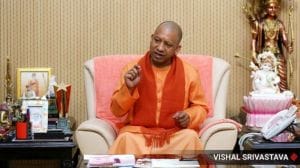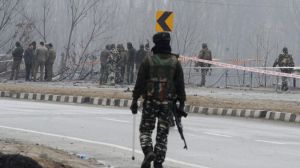A philosopher, his life of the mind and heart
Ramchandra Gandhi, perhaps the most brilliant mind I have known in my life, passed away in his sleep at the India International Centre on Wednesday — his virtual home for the last fifteen years or so.

Ramchandra Gandhi, perhaps the most brilliant mind I have known in my life, passed away in his sleep at the India International Centre on Wednesday — his virtual home for the last fifteen years or so. Ramchandra — Ramu, to all his friends — taught philosophy at St Stephen’s College, Delhi University, University of Southampton in England, Visva Bharati and Central University of Hyderabad.
Ramu’s first degree was in Physics; he then took a Master’s in Philosophy from St Stephen’s College and a D.Phil from Oxford. At Oxford, he worked with Professor P F Strawson, one of 20th century’s most distinguished philosophers.
Ramu’s philosophical quest took him from Whitehead to British analytical philosophy to Ludwig Wittgenstein to the Upanishads to Sri Aurobindo and finally to Ramana Maharshi.
The abiding underlying thread of his philosophical thought is that all existence is saturated with the Self and that this is the true foundation of the ethical life. Ramu was an inspirational teacher. A brilliant wielder of language — whether English or Hindi — he could give a totally unexpected turn to an argument or introduce a remarkable change of perspective with an incredibly imaginative use of a word or a sentence. This used to happen fairly frequently during the course of a lecture or conversation and it never failed to leave his listeners pleasantly awed by his wonderful power over language.
Ramu taught himself Sanskrit when he was in his forties and became perhaps the most imaginative reader, of our times, of the Upanishads. His book, I am Thou, written in the style of a Puranik text, but reminiscent also of some of Wittgenstein’s most penetrating writings, eases out immensely surprising, and yet highly convincing meanings form vedic and puranic tales. Reading this book is an enthralling journey of ever-new discoveries. No other book I have read quite compares with I am Thou in this particular respect.
Of his primarily academic philosophical works, the best to my mind is The Availability of Religious Language, easily the very best in the series on Philosophy of Religion edited by Professor Hick of the University of London, in the 1970s. The demolition of Babri Masjid was to Ramu, as to many others among us, perhaps the most heartbreakingly shocking event in our contemporary cultural history. Ramu wrote Sita’s Kitchen in atonement for this event. Written in extraordinarily vivid language and yet language that is argumentative in the best sense of the term the book is a powerful plea for the restoration of the religious as opposed to the doctrinaire or politically imagined sanctity of the place.
Ramu’s friends will remember him mostly as a brilliant and extraordinarily witty conversationalist. An hour-long conversation with Ramu could be a transforming experience. Ramu could attend to a problem with such penetrating intellect and talk about it in such brilliantly diverting language that one would come away from the conversation feeling quite enhanced in one’s heart and mind. Ramu could be seen almost everyday sitting in a cane chair outside the IIC lounge either alone in deep reflection or among a group of keen listeners. The physical void left by Ramu’s passing away will be for a very long time one of the most keenly felt absences in the IIC ambience.
On a personal note, I have known Ramu as a teacher, as a colleague, as a friend different from any other that I have had the good fortune to have and as someone whom I could turn to in seeking my way about a difficult philosophical problem. When I reflect on my long association with him, I can think of no one else who made the kind of difference that Ramu made to my way of thinking and being.
There is just too much of Ramu in me for him ever to be out of my reach.
Mrinal Miri was vice-chancellor of Northeastern Hill University, Shillong, and is member of the National Advisory Council
Photos





- 01
- 02
- 03
- 04
- 05


























